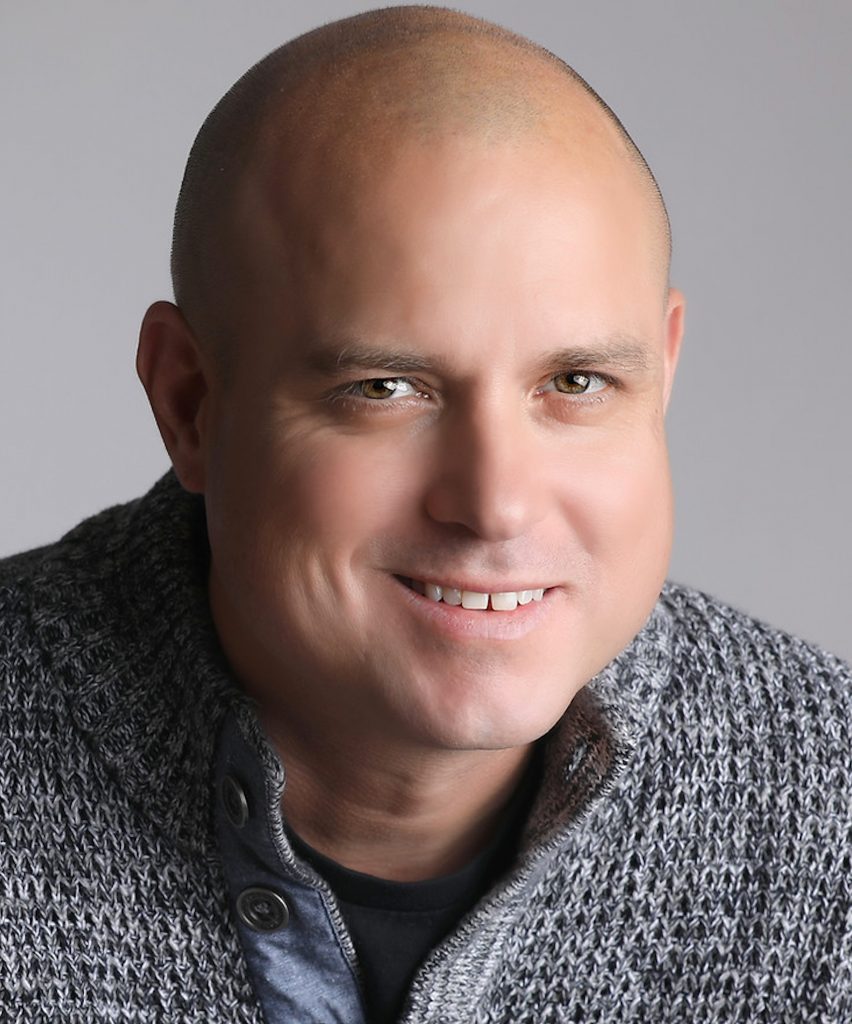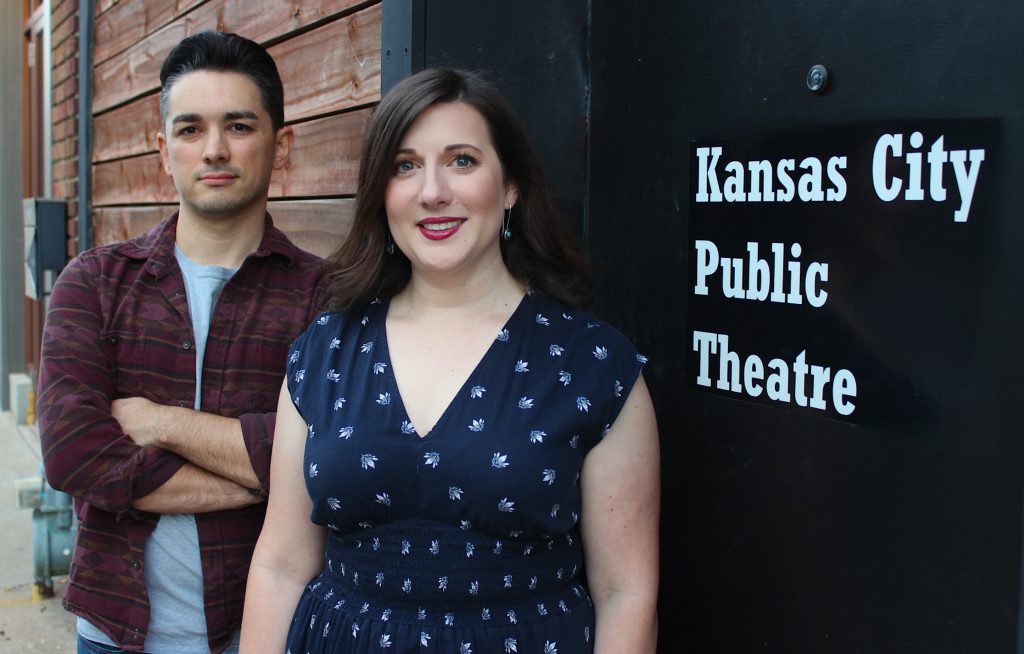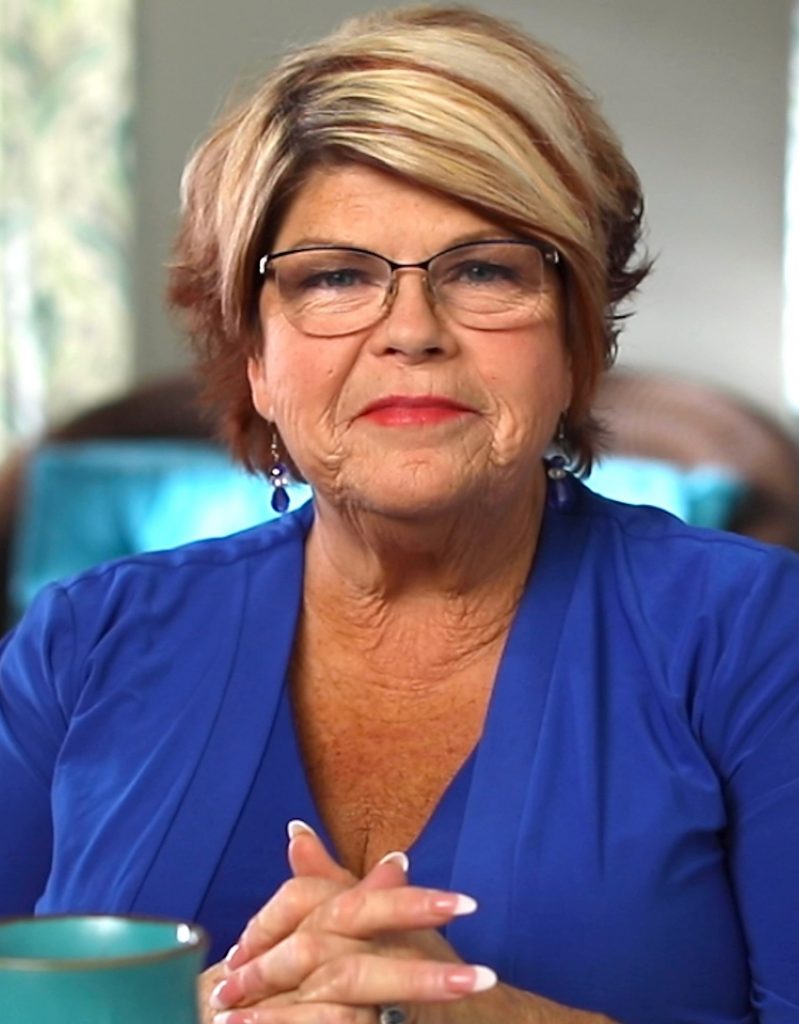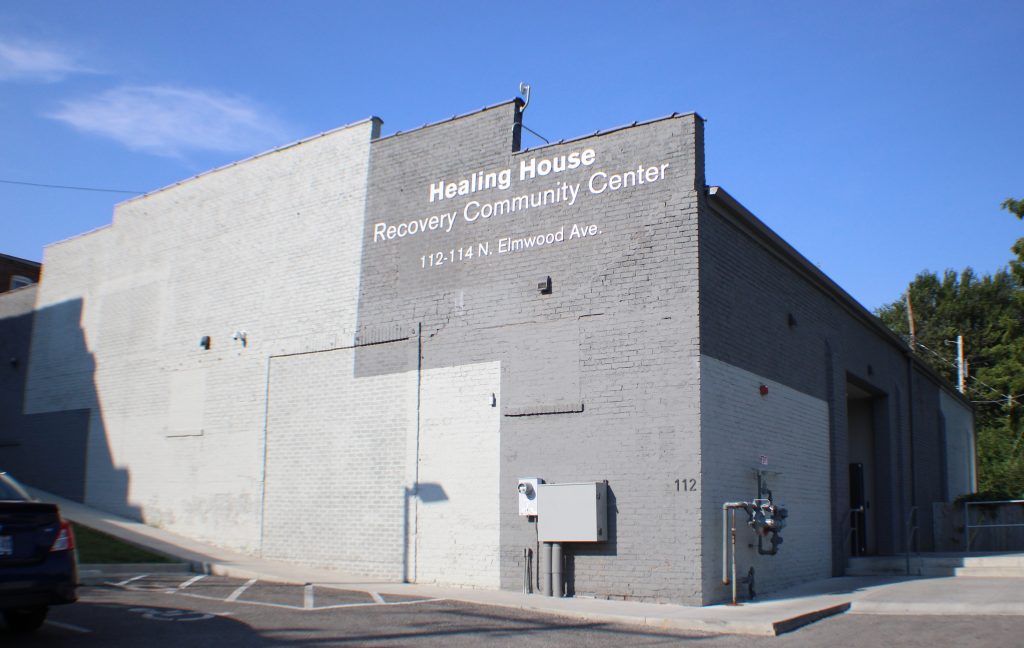We have long recognized that the arts can aid in certain types of healing. Music, art, and dance therapy — which have grown into sophisticated, goal-oriented disciplines — offer practical tools that serve both physical and psychotherapy and can assist in treating post-traumatic stress, dementia/Alzheimer’s Disease, and even certain mental illnesses.
Drama therapy, which traces its immediate roots back to 18th-century Europe, uses elements of theater to help people process emotional crisis, trauma, and even substance abuse — all in an active and experiential way.
But can theater really assist in recovery from addiction? That is one of the questions that Kansas City Public Theatre and Healing House KC hope to address this month, by taking a fully developed theater production into treatment programs.
Playwright Aaron Scully first presented The Disappointments at a Missouri Playwrights Workshop at the University of Missouri-Columbia, and subsequently at KC Public’s Theatre Lab in April 2023.
He has now adapted the play, which originally formed part of his doctoral dissertation at Mizzou, for use not only in recovery centers but also on mainstages. Regular performances of The Disappointments are from November 15th through the 17th at the Public Theatre’s new Oak Street Studio.
But the first performance of The Disappointments, presented for residents of Healing House’s recovery homes, will take place November 9th at Healing House Recovery Community Center — with an additional community performance on November 11th at Independence Boulevard Christian Church, in partnership with Fruition KC and The Micah Ministry.
“The project was born out of our desire at Kansas City Public Theatre to explore stories that reflect the realities of our community,” said Executive Artistic Director Elizabeth Bettendorf Bowman, who established Public Theatre in 2017-2018 with her husband, Producing Artistic Director Nathan Bowman.
“This collaboration with Healing House is particularly important because it brings visibility to narratives of recovery and resilience, which we believe are deeply impactful and necessary.”
There is a touch of irony in using theater to address addiction, considering how large alcoholism and drug abuse have loomed in American drama: from Eugene O’Neill’s Long Day’s Journey into Night to Edward Albee’s Who’s Afraid of Virginia Woolf? — and more recently from Quiara Alegría Hudes’s Pulitzer Prize-winning Water by the Spoonful to Tracy Letts’ August: Osage County.

“Alcohol is used as a tool to get characters to do things they otherwise wouldn’t do, or say things they otherwise wouldn’t say,” said Aaron, an actor, playwright, and theater scholar who is also an assistant professor of theater at the University of Central Missouri.
Or as playwright Craig Lucas (I Was Most Alive With You) told The New York Times, referencing the appearance of morphine-addled Mary Tyrone at the end of O’Neill’s play: “People behaving badly is fun, fun, fun, fun, fun. … ‘Long Day’s Journey’ isn’t any good if Mom doesn’t show up going, ‘I was so happy for a time.’ If she doesn’t come in looking like Ophelia on crack, there’s no play.”
Authors have generally found fewer opportunities to make recovery itself into gripping theater: that is, until recently.
“Because there is so much conflict within addiction, it makes for good theater, for good storytelling,” Aaron said. “But when somebody’s in recovery, that conflict is lessened, so it’s not as exciting.” Today, however, as an array of addictions reach epidemic levels in America, the repertory of “recovery dramas” is growing: Duncan Macmillan’s People, Places and Things, Sean Daniels’ The White Chip, and Catya McMullen’s Georgia Mertching is Dead, to name a few.

The Disappointments takes place almost entirely inside a treatment center, where five addicts and their counselor interact in a series of initially light but increasingly severe exchanges. The protagonist, Second, has recently received an ultimatum from his would-be fiancée: “Either you get help or … I have to leave.”
Second agrees to give The Good House a chance, and the sharply etched characters he encounters there form the basis for a powerful piece of theater.
The reality of mortality hits home for Second when he is confronted with the statistical likelihood that, rehab or no rehab, at least one member of the group will possibly be dead within two years.
This is, indeed, a stark reality in treatment programs. “There are always people in there for whom you’re thinking, man, I’m not feeling good about what might happen when they get out,” Aaron said. “They just seem so lost, so unable to come to grips with the reality of their situation.”
Aaron wanted to create a play that was universal enough that it could appear on mainstages but specific enough that it could also be used as a therapeutic tool. “I wanted to see what theater looked like through the lens of recovery, because there are not very many plays about recovery, about people looking back on addiction.”
If general audiences can be drawn into the action, those in treatment can perhaps “see themselves in the characters, and hopefully learn something about themselves or their treatment.”
At the same time, he added, “I very much want it to be entertaining, to keep the audience engaged throughout.” Moreover, education is as central to theater as it is to recovery. “It goes back to the ancient Greek philosophers, who talked about whether theater should be used to entertain or to educate.”
The answer is both: Playwrights yearn to create vivid characters and authentic dialogue to divulge information “without the audience even knowing that they’re getting it,” Aaron said. “They’re learning things about what they’re going through without being told directly or having them explained.”
Aaron also hopes to draw research from the experience, via surveys and other forms of information-gathering among those in recovery — “to formulate how well this works, to see how effective theater might be as a teaching tool for recovery.”
Kansas City audiences are fortunate beneficiaries of the process. “At KCPublic, we strive to make theatre accessible and meaningful,” Elizabeth said, “and The Disappointments is a testament to that mission. Our hope with this project is to open up conversations about recovery and healing, and to show the power of community in that process.”
— By Paul Horsley
The Disappointments stars Jerry Mañan, Lauren Smith, Kenan Meadows, Jake Golliher, Danniel Correa-Olmo, Kelly Main, Shane St. James, and Caleb Parish. Elizabeth Bettendorf Bowman directs.
For tickets, go to kcpublictheatre.org. To reach Paul Horsley, performing arts editor, send an email to paul@kcindependent.com or find him on Facebook (paul.horsley.501) or Twitter/Instagram (@phorsleycritic).



